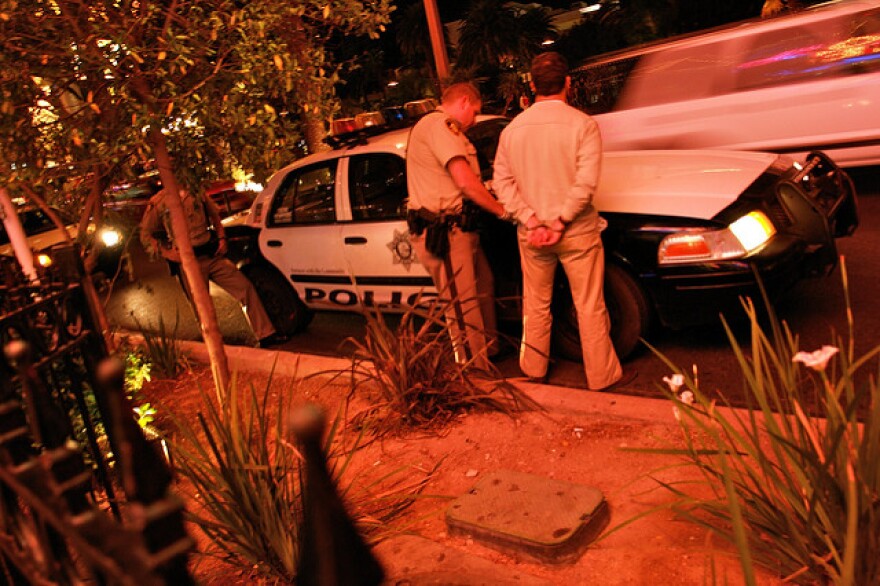In the late 60’s, politicians and mental health experts agreed that large hospitals were not great places for most people to recover from a psychiatric illness. Staying at or near home, getting services in the community, was a better bet.
So the nation started releasing people from mental hospitals, but in many places politicians failed to sufficiently fund local services. Now, millions of people with mental illness are on the streets or creating conflict at home, and police are on the front lines of an on-going crisis.
When someone is having a mental health crisis, relatives or members of the public often call police. That’s why some officers now take part in a training program designed to streamline encounters with people who have bi-polar disorder, schizophrenia, PTSD or some other serious psychiatric condition.
“I’m a father, and if I had a daughter who was cutting herself, I’d be concerned,” says one trainee to his mock patient during a training. “That’s not a good sign, so if we could find you someone to talk, would you come with us?”
Trainer Tom Von Hemert says police don’t learn crisis intervention skills in school.
“When they go through the police academy, which is about 22 weeks, they’re only given two hours of training on mental health, and that’s only how to issue the legal documents of an emergency custody order or a TDO or temporary detaining order,” says Von Hemert.
Today, Virginia has 35 crisis intervention programs teaching officers how to approach someone who’s had a psychiatric breakdown, what to say and how to diffuse tension.
In addition to responding to an incident, police are also often charged with transporting mentally ill people for treatment.
This is Part 2 in a 5-part series on mental health in Virginia. You can see all the stories here.
Stacy Gill, with the Virginia Department of Behavioral Health and Developmental Services, says their passengers may be frightened or ashamed to ride in a squad car.
“If you’re taken to the hospital under a TDO you have to be handcuffed and put in the back of a police car, so you’re treated much more like a criminal than you are like someone with an illness,” says Gill.
And the arrangement is not ideal for police either.
“It is a tremendous strain on our law enforcement," Gill says. "We have a bed shortage in this state, and sometimes law enforcement is being asked to drive four or five hours to get them the hospital care that they need.”
So Gill's agency is overseeing a different approach in southwestern Virginia. There, a judge can request that someone who is mentally ill be transported by specially trained laymen.

“Basically you’re talking about a crew of people that drive unmarked cars. They do not carry weapons. They dress in plainclothes,” says Gill.
When lawmakers meet in Richmond next month, they’ll consider a bill to make civilian transport possible statewide.
Another issue is where police are transferring patients to. Often, they end up in the ER.
Richard Bonnie is a professor of law, medicine and public policy at UVA, and an advisor to the state commission discussing mental health care reforms.
“The worst place for a person who’s in a mental health crisis is to be in an emergency department with all the hustle and bustle and stresses and so on," Bonnie says. "Having freestanding psychiatric emergency services to provide the care that they need and the immediate evaluation can probably— and it’s been shown in many other states -- reduce the need for hospitalization.”
Charlottesville has something like that – a place called the Wellness Recovery Center. Molly Yates is director of emergency services at Region Ten, where she oversees the center.
“They have multiple groups a day including yoga, and they walk outside, and they learn skills to avert a more serious crisis,” says Yates.
For this man, who asked that we call him Jeff, the Wellness Recovery Center was key to coming back from a major depression.
“I stayed for two weeks. It gave me a supportive community. I learned a lot of skills in terms of taking care of my recovery,” says Jeff.
Lawmakers will also be considering more funding for alternatives to hospital emergency rooms. But, for now, few communities have anything like Wellness Recovery. Instead, many people with psychiatric problems end up in jail.

